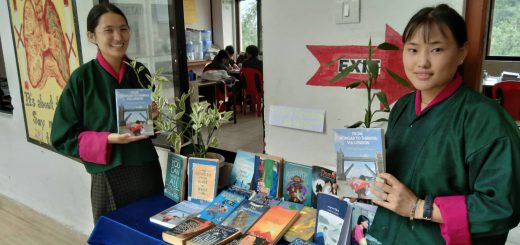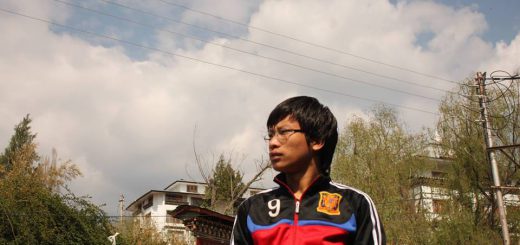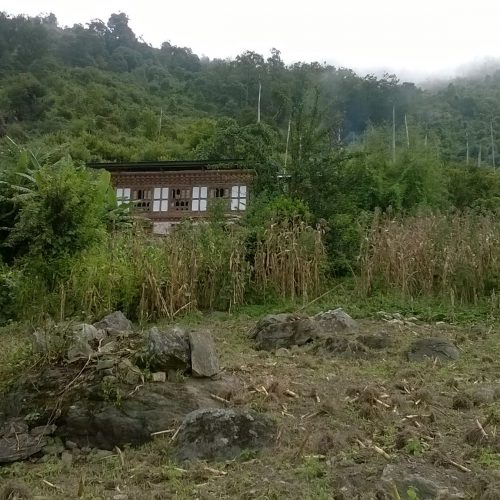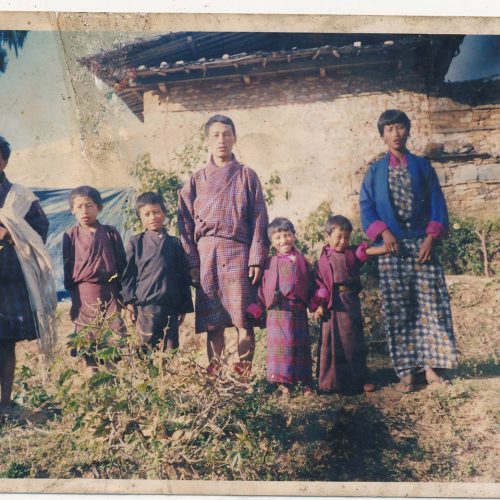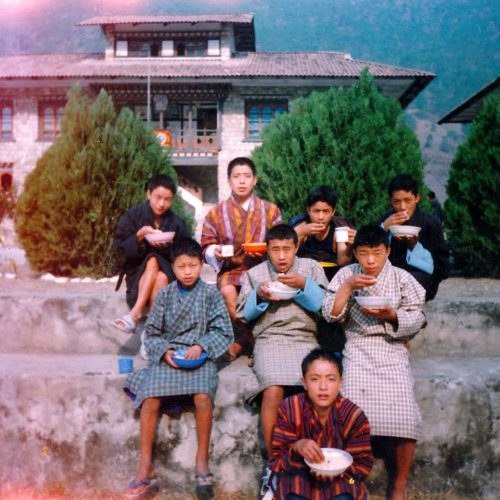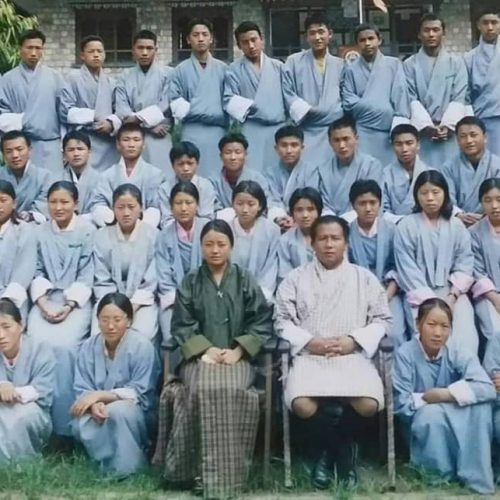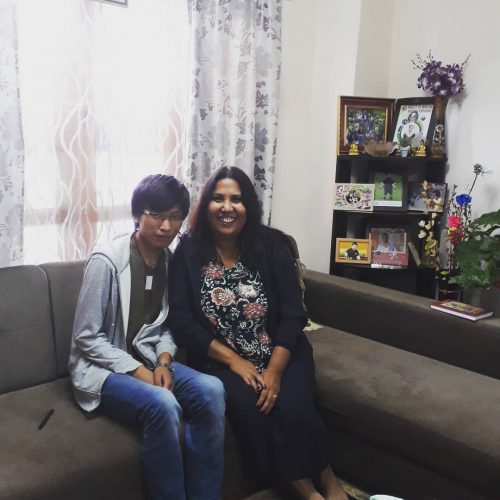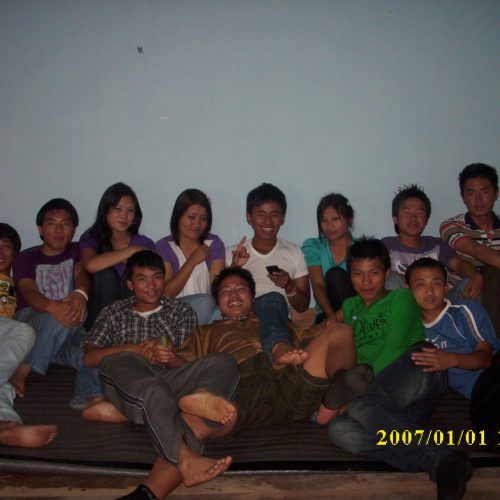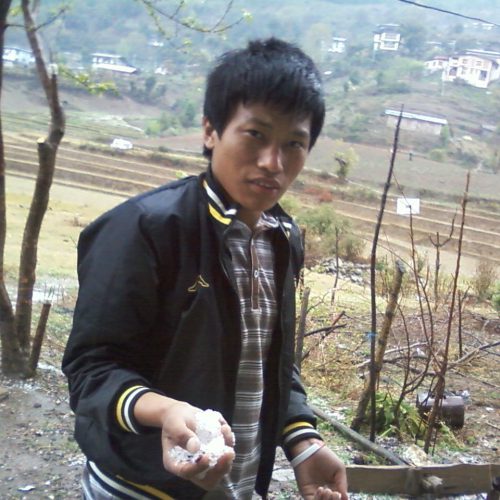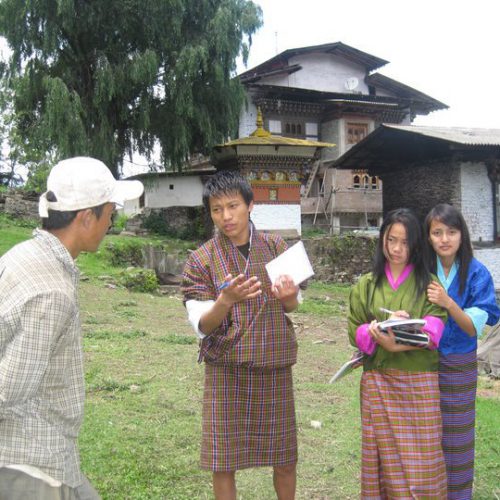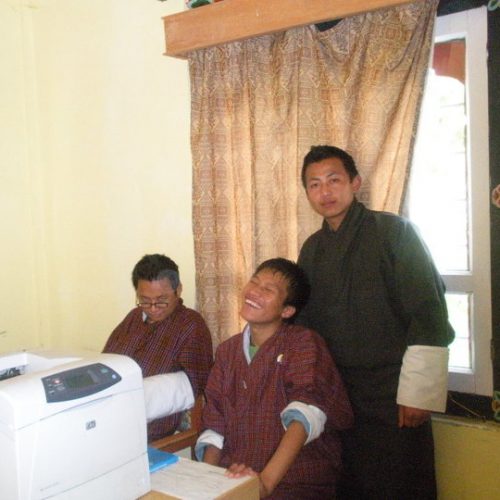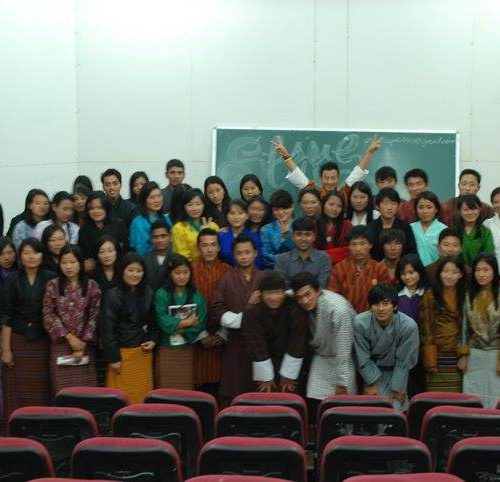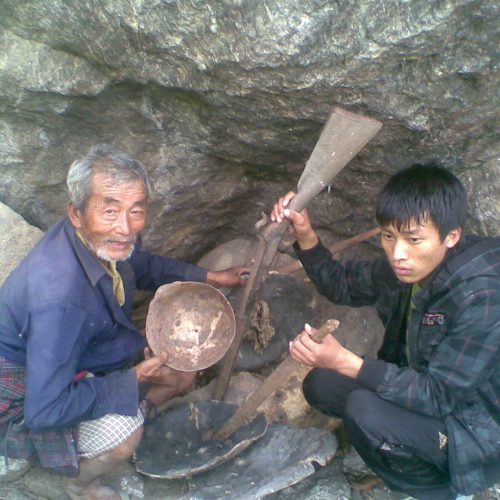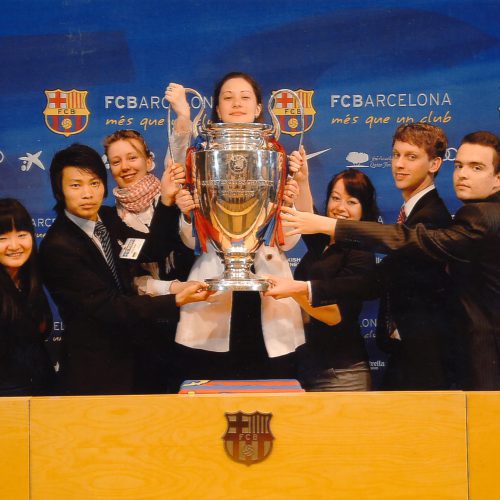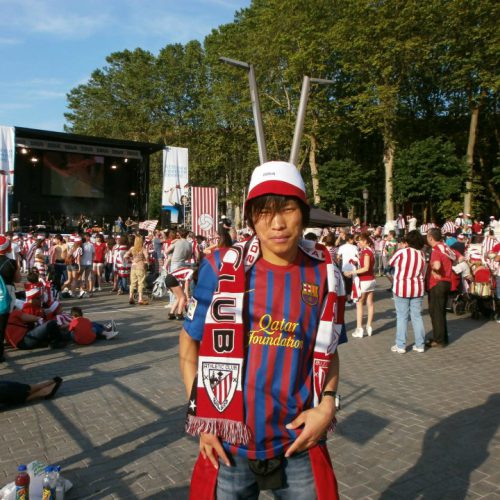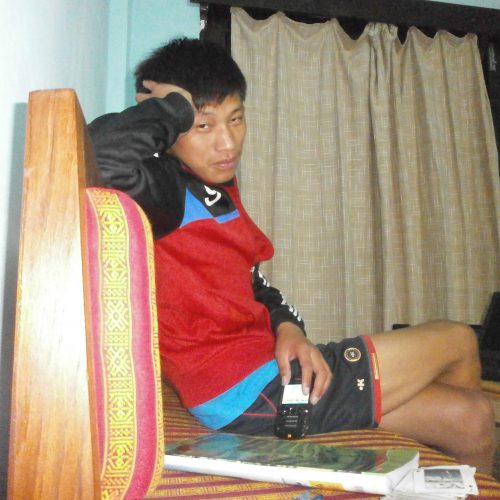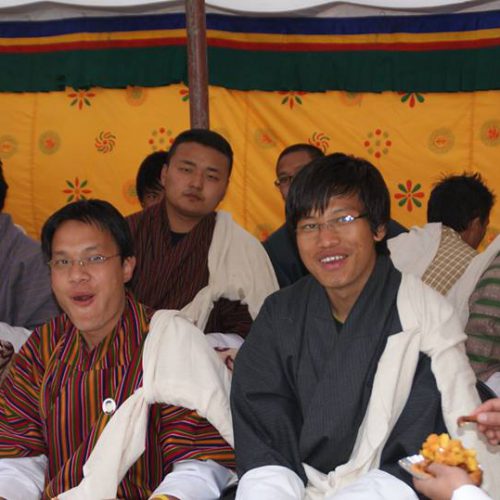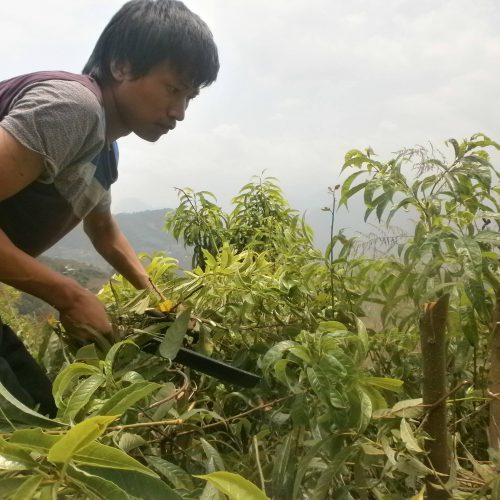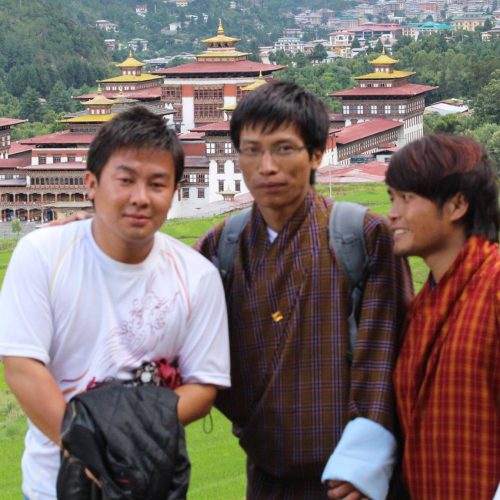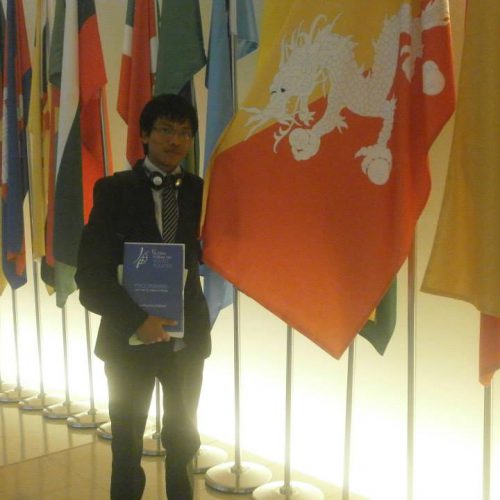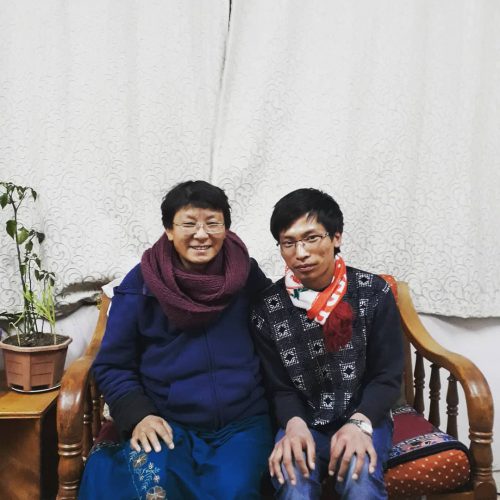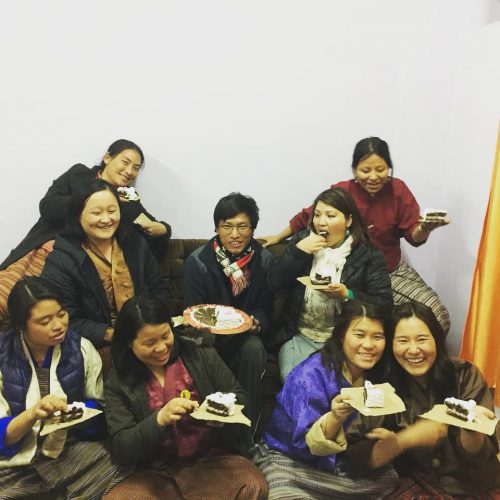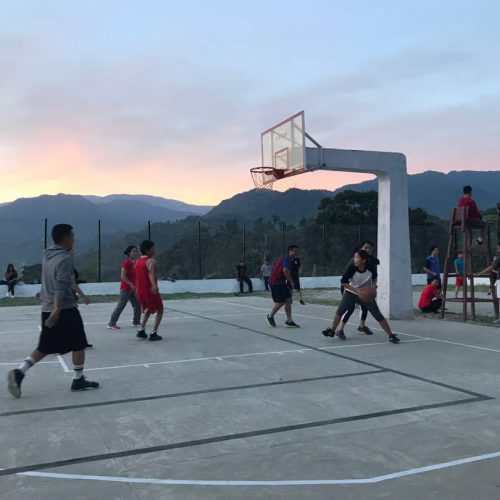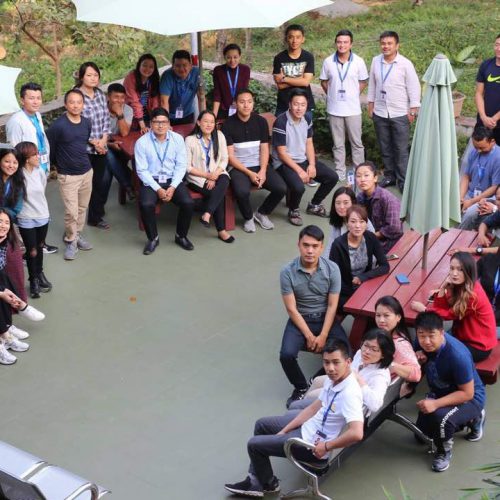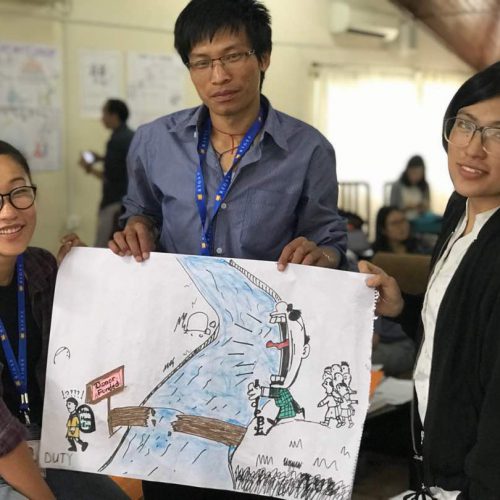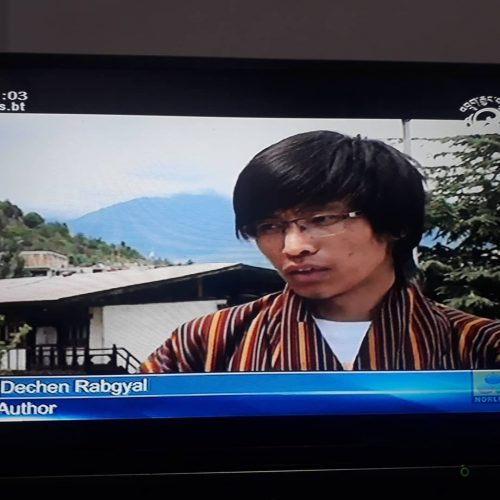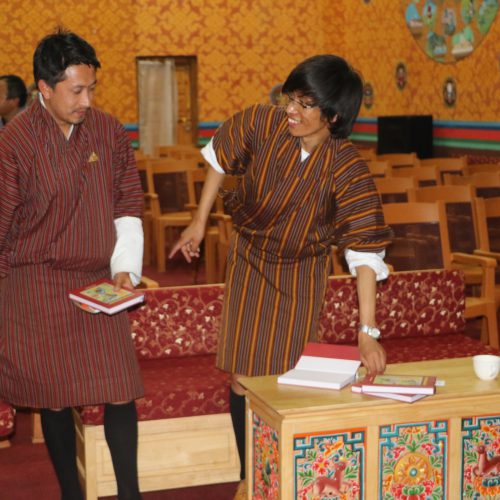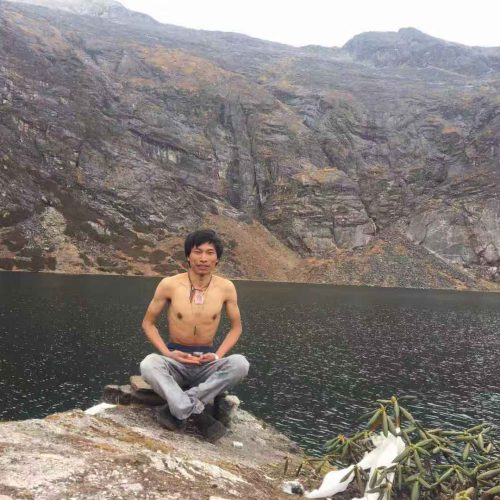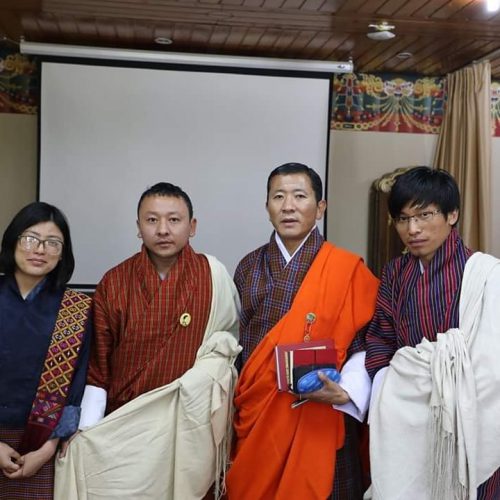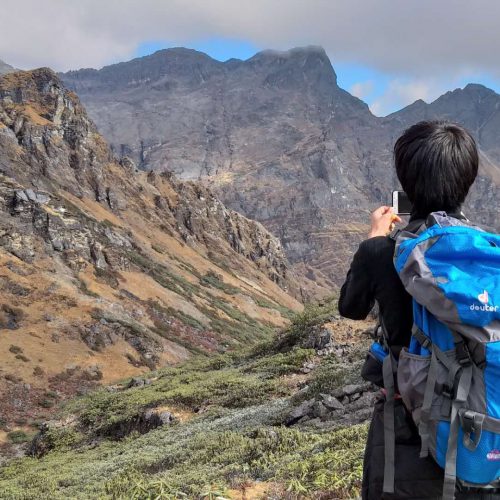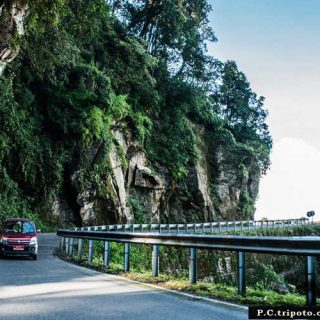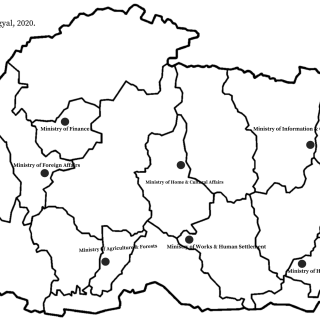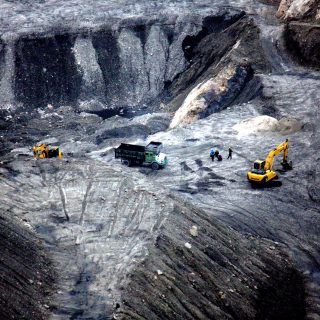New norms, new normal- Bhutan beyond COVID-19
In the wake of COVID-19 pandemic, I hear leaders and people calling for ‘new normal’, ‘new norms’. Pondering on what could it really mean, it took me through a series of encounters I have had with teachers who taught me to ‘think intently and objectively’.
ཕ་བླ་མ་མེད་པའི་གོང་རོལ་ན།།
བུ་སངས་རྒྱས་ཤེས་བྱའི་མིང་ཡང་མེད།།
བསྐལ་པ་སྟོང་གི་སངས་རྒྱས་ཀྱང་།།
བླ་མ་དག་ལ་བསྟེན་ནས་བྱུང་།། །།
My perspective on ‘New norms, new normal- Bhutan beyond COVID-19’ is a tribute to my teachers for helping discover world within me and beyond. Thank you beyond the sky and the earth! This opinion piece is partly a commentary built around my lived experiences in the countryside of Drepung, Mongar.
After the first case of COVID-19 in the country was reported on 6 March 2020, feelings of anxiety, panic and uncertainty overwhelmed many. Streams of posts on social media, conversations at homes and reported stigmatization of strangers, particularly those coming from urban hubs to rural hamlets indicate the instant reaction people developed towards the pandemic. However, led by His Majesty the King, Bhutan’s effort in containing covid-19 is exemplary. Accelerating preparedness plans, establishing quarantine centres, procuring test kits, introducing relief and welfare measures and securing our borders are some of the major mitigation efforts.
As we continue to sail through these trying times, we are undergoing a phase of life which we, perhaps, never imagined about. Quarantine might be the newest word most Bhutanese learnt. Closing shops at 19:00 [7 pm] could have been surreal reality to think of, particularly among urbanites. Working from home would have been too revolutionary an idea? Residents of Jomotsangkha and Gomtu could never have dreamt of being disconnected from the rest of the country? Did it ever come to our minds if our border gates were to be sealed for months? All these occurred real time. In the midst of it, ‘new normal’ and ‘new norms’ are often used lexicon these days. What do these words call for? Perhaps, our recent historical past could offer insights, provided we choose to draw some.
Self-reliance is one of the important national economic goals of Bhutan. Within it, food security form vital component. Herding cattle with late grandfather, he used to share stories- cereals, coins and corvee labour. As a kid, I was used to seeing parents and neighbours processing (very rudimentary) mustard oil. Home-made sweet buckwheat flour with soup made from curd (local term cha min) and wheat flour noodle (local term brang ji) were quite tasty though labour intensive. Corn (local term kharang) was our main staple. Salt was only item my late grandfather bought (imported)! He didn’t know anything about indicators of poverty, let alone mult-dimensional poverty.
Gradually, paddy fields of Gyelpozhing gave way to small shops, now a bustling town in eastern Bhutan. Refined oil was found to be comparatively cheaper than home processed mustard oil. Rice gained a status of superior taste- only during grand occasions and annual events one could afford it. As things stand today, wheat is no more to be seen in my village; my parents abandoned growing sweet buckwheat a long time ago. My nieces and nephews don’t see my cousins processing mustard oil. With the outbreak of COVID-19, the first line of conversation among people in the village was to stock rations- oil and rice (I was in the village on 6 March). Seeing these developments retrospectively, we have given our local economic practices too easily to the global market. Perhaps, we were convinced by economic lesson on comparative advantages.
In an archetypal village, the father would go for labour exchange (la tshab), the mother to collect fodder, the grandparents would guard dried grains against birds, the son would herd cattle and the daughter guard crops (corn and the like) against animals. However, they would have meals together, at least the dinner. Having to husk corn, autumn nights were quite long. The fifteenth day of the lunar month was much longed for as the bright full moon under a clear autumn sky would provide much needed light to complete our work. Those long nights also gave time to interact. Grandparents and parents would narrate stories– folk tales and their stories of struggles and successes. It was through these night time stories that I got introduced to my community more. In my ancestral and parents’ hardships and achievements, I saw values and discipline. Those tale-telling episodes brought family members ever closer-knew and understood each other more. Of course, there would be quarrels and arguments. Perhaps, those hard labour, struggles, quarrels and togetherness helped one become more resilient, emotionally.
As years passed, from the window of our house at Drepung, we could see Gyelpozhing lit at night. Those were not stars but electric bulbs. With modernisation came television, internet, jeans and coke. Majority of kids and adolescents are drawn more towards cartoons and western music and cinema. On the other hand, adults and elderlies tend to be more interested in folk songs, musics and dances. Social media accelerated our interaction with the global community. Each one of us have our own tastes and preferences, thus schedules. There is less time for real time conversation. Everyone is busy. Ap Wang Drugyel and Mey Mey Heley Heley may not find their place in modern day family dining table. And, we discuss issues of intergenerational gap, quite seriously. Don’t we?
Generation Y and Z might not know how to place a saddle on horseback and may not have a strength and skill to lift a plough. By the same measure, Baby boomers might not have Instagram and tik tok accounts. Do these differences amount to intergenerational gap? Possibly not. It becomes complex and difficult when generation Y and Z do not have an idea about horse, saddle and plough; and Baby boomers claim they do not understand anything about Instagram and tik tok. This can only be averted through intergenerational dialogue which should first begin from family circle. It is through conversations that we understand each other more. In so doing, mental health and associated issues can be reduced. In addition, it would help preserve Bhutan’s strong oral tradition though themes and topics may change overtime. And, retiring at home at 19:00 could be an ideal opportunity to enliven such intergenerational conversation.
Education continues to play a significant role in Bhutan’s modernisation processes. A rusty cowherd in a hinterland can now dream of becoming a doctor, lawyer, diplomat, etc. However, the general perception and approach towards education between yester year and today seem to stay constant. But things are different. Those days, as planned socio-economic development commenced, the human resource needs in the government were of paramount importance. On the other hand, the resource pool was small. Parents would beg and gift government officials not to enroll their children in schools. Today, getting admissions are difficult. And, employment opportunities are far and few. With automation, things apparently are not going to get any better. With borders sealed and mobility across borders stopped, youth run salon in Phuntsholing and some laid off workers have ventured into farming (agriculture). How far would it last in a society where going back to a village at youthful age is equated with failure – failure of not getting into a government job. And, government job has become the indicator of success. In my faint recollection, in the villages being able to shoulder household chores and do farm works were considered as a sign of maturity. Where did we lose the connection?
Connecting villages and valleys, road network has been accorded one of the topmost priorities ever since the start of the first Five Year Plan. Transport and communication became more sophisticated as we introduced airways and internet. As I pen this opinion piece, India has extended its countrywide lockdown. While certain restrictions such as closure of shops by 19:00, shut-down of entertainment centres and scrutiny of large gatherings are put in place, mobility within the country though discouraged, is not restricted/banned. However, residents of Jomotsangkha and Gomtu remain cut-off from rest of the country– these places were first connected to Assam and Bengal than Samdrup Jongkhar and Samtse, respectively. During such times, being an import driven country, though essentials are being stocked up, delivery of such items and general administration tend to become a complex task.
Virgin peaks of the Himalayas couldn’t stop the COVID-19. Yet, under the leadership of His Majesty the King, Bhutan took a swift decision to contain the virus and to mitigate its impact. Tourism and hospitality sectors are hardest hit followed by transport and communications. Employees and workers are laid-off and furloughed. Schools remain closed and work from home is being implemented across sectors. These disrupted our economy. Elderlies are identified as the most vulnerable and Bhutanese abroad are being evacuated.
COVID-19 is one threat to combat and those affected by measures taken to mitigate covid-19 is another huge task. What are our next steps? True to His benevolence and farsighted vision, His Majesty stepped in, as always, to lift His people out of anxiety, fear and uncertainty. Through ‘Druk Gyalpo’s Relief Kidu’, those affected are receiving money as Kidu. Further, His Majesty The King’s Kidu medicine solera (gift) are being distributed to elderlies. Beside these, loan repayment have been deferred by three months and interest waived. On the citizens part, financial contribution poured in- big and small, the hospitality sector provides hotels as quarantine centres, virtual teaching-learning is ongoing, and villagers donated vegetables and dairy product. The show of solidarity, goodwill and unity is unrivaled!
Based on the hitherto developments in our efforts to combat COVID-19, ‘new normal’ and ‘new norms’, as I see, need to:
- Strengthen Bhutan’s welfare state model covering, inter alia, labour and employment, old age, laid-off employees and unemployed. This can only be propelled by corresponding tax and labour law reforms. Social sectors such as health should neither be corporatised nor privatized. Simultaneously, restructuring economy in the areas of control over natural resources need to be considered.
- Educational reforms in the areas of information, communication and technology (ICT) should first address technology gaps. As virtual learning commenced, least advantaged children without smartphones and technologies were left unattended. Self-instructional materials (SIM) for these students were launched (2 May 2020) more than a month after virtual learning began.
- Design educational content that inculcates dignity of labour. It needs to be accompanied by labour law reforms in the area of wages, security and protection.
- Accelerate agriculture produce to achieve food security. Beyond employment and commercialization, traditional crops, such as nine cereals (bru sna dgu) and other crops need to be promoted. It is expected to preserve agriculture-based culture while expanding nutritional base/diversity.
- Require all landholders to maintain a minimum percentage of arable land through a legislation. It would ensure minimum acreage of land for agriculture against fast expanding urban centres. Otherwise, Bhutan’s limited arable land is shrinking and the goal of food security will remain a far-fetched dream. This is vitally important as Bhutan aspire to remain organic and pursuing intensive farming may have to negotiate and compromise high standards we aspire to achieve.
- Connect all parts of the country through internal roadways. During the times of exigencies, cutting-off certain region adds administrative burden while exposing to external uncertainties.
- At individual and household level, we can encourage inter-generational dialogue and conversation in community context. It would enrich learning; help understand our past better through oral tradition. Such conversation will also help reduce growing issues of mental health and youth delinquency through parental guidance and counseling.
Everything is constant but change. COVID-19 struck us when we are at critical juncture- 21st century Economic Roadmap being drafted, preparatory works to graduate from the list of Least Developed Countries (LDC) underway and reflecting our achievements under VISION 2020. As we reprioritize our planned activities, these retreating times provide opportunity to contemplate deeper so that the story of Bhutanese change is a tale of continuity, progress and happiness built around vibrant communities, distinct culture and inclusive, sustainable and progressive economy – a model welfare state where tradition thrive side by side modernity.


